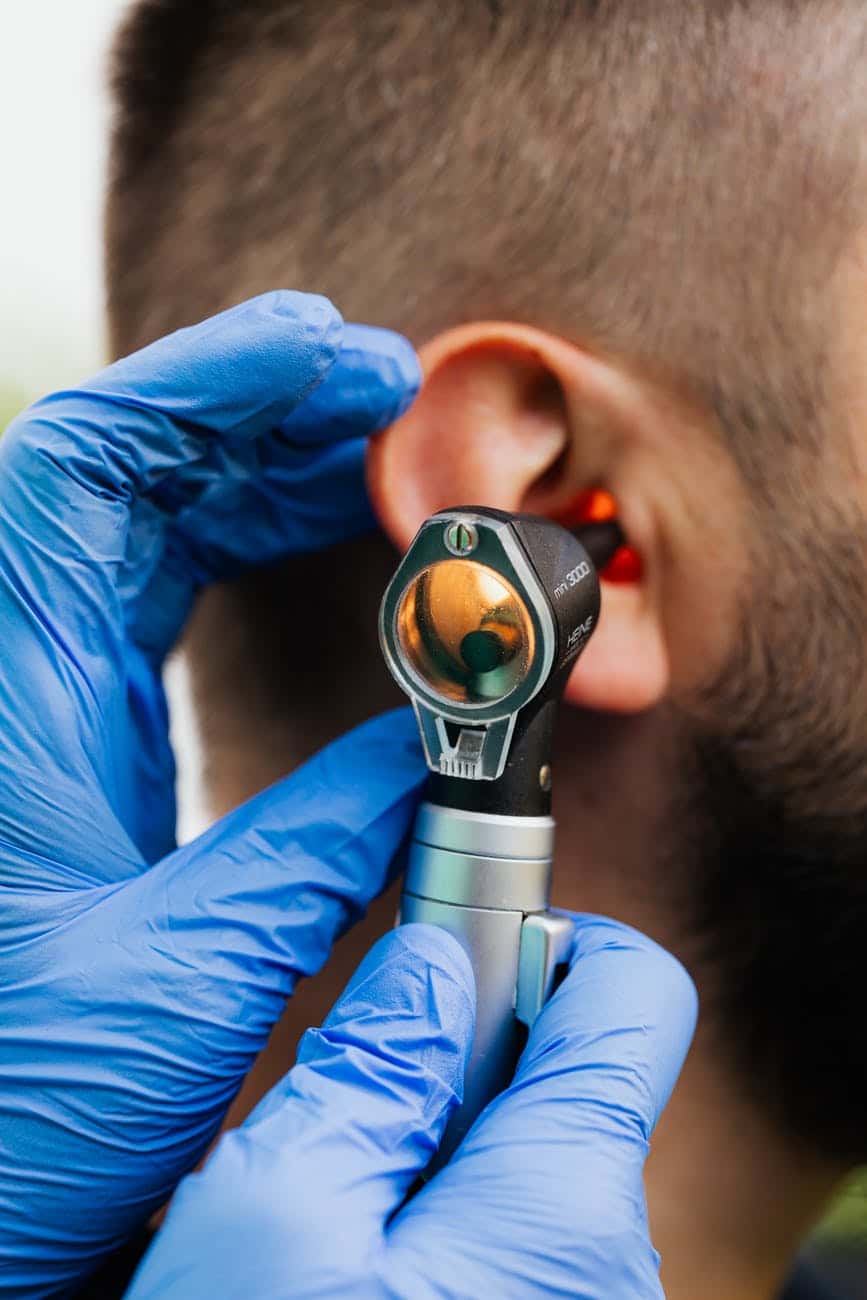If there’s blood coming from the ears, even if it’s just a little bit, it can be alarming. While a bleeding ear is not usually the sign of anything too serious, it’s important to seek treatment promptly just in case. Below we review the common causes of a bleeding ear, treatment options and when to see a doctor.
Causes of a Bleeding Ear

The most common cause of a bleeding ear is a ruptured or perforated eardrum. The eardrum is the thin membrane between the ear canal and the middle ear that vibrates in response to sound waves passing through.
A ruptured eardrum can be caused by an ear infection, sudden changes in air pressure like when taking off from Ft. Wayne International Airport, trauma from sticking something in the ear like a cotton swab and exposure to extremely loud noises.
In addition to a bleeding ear, symptoms of a ruptured eardrum include earache, hearing loss, dizziness and tinnitus (ringing in the ears).
There are other possible causes of a bleeding ear. These include:
- An object stuck in the ear.
- A pimple or scab in the ear.
- A blow to the head.
- Ear or skull base cancer.
Treatment for a Bleeding Ear
If you have a minor ruptured eardrum, your doctor may recommend resting until it has healed on its own along with taking antibiotics to prevent an infection.
Some perforations need to be treated by an ear, nose and throat (ENT) physician. This may entail either placing a patch over the perforation or performing surgery wherein tissue from another area is used to patch the hole.
If your ear is bleeding due to another condition, an appropriate treatment will be recommended by your doctor.
When to See a Doctor
If your ear begins bleeding, you should schedule an appointment with your doctor to determine the cause and the appropriate treatment.
You should seek immediate medical attention if you hit your head, or if you also experience:
- Dizziness.
- Vomiting.
- Hearing loss.
- Bleeding from the nose.
- Vision problems.
- Confusion.
- Loss of consciousness.
For more information about what to do about a bleeding ear or to schedule an appointment with an expert ENT physician, call Ear, Nose & Throat Associates, P.C. today.